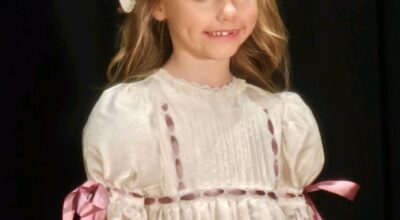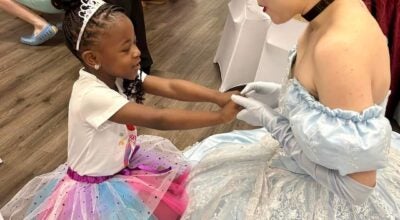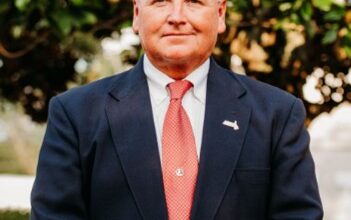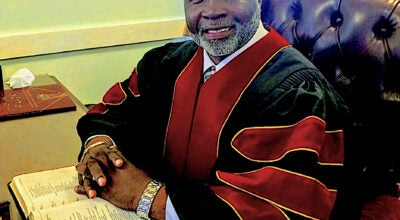Are Rosh Chodesh and Rosh Hashanah right for you?
Published 12:24 am Tuesday, September 20, 2022
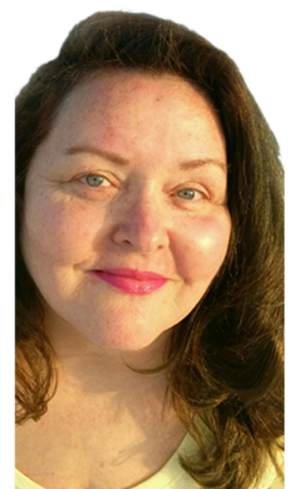
- By RA Mathews (The Rev. Mathews (BA, MDiv, JD) is a faith columnist, seminary graduate, and the author of “Reaching to God.” Contact her at Hello@RAMathews.com.)
|
Getting your Trinity Audio player ready...
|
Three mysteries.
He was the bravest of men in my world. And utterly humble.
My father was commissioned in the field during the war, and he made light of that. “They handed those things out to everyone left standing,” he’d say. It was only after his death that I learned the truth. It was a big deal.
Although I never saw my dad afraid, he’d tell a story that was his brush with death. I could hear it in his voice.
It seems my mom was driving when their vehicle stalled on the railroad tracks—with an oncoming train in sight. My dad had broken his leg and was in the backseat, unable to get out. But my mom finally got the car going.
“Stop, look, and listen!” was then drilled into my little head. To this day, I can’t approach railroad tracks without thinking of that admonition.
Imagine my surprise when I stumbled across nearly the same words in Scripture. God stops Ezekiel and says, “See, hear, pay attention!” That’s a whole lot like “Stop, look, listen!”
I thought: Wow, a railroad crossing in the Bible?
Here’s the verse: “Son of man, see with your eyes, hear with your ears, and pay attention…” (Ezekiel 40:4 NASB)
What was the big event?
- A train on the tracks.
- A man with a measuring rod.
- The walls of Jericho falling.
- A triple rainbow.
Look over your choices and I’ll give you a hint: Jericho fell when the Israelites invaded the Promised Land, nearly 1,000 years before Ezekiel.
You have only two possibilities now. Those in my 1-minute daily Bible study will know the answer; those single minutes add up to a lot of knowledge.
Consider your choices and lock in your answer.
It’s No. 2. God says “See, hear, pay attention!” as He shows Ezekiel a bronze man with a measuring stick. The last nine chapters of Ezekiel are devoted to him. A lot!
What happens?
The bronze man appears after the exquisite temple in Jerusalem is destroyed by the Babylonians. The bronze man shows Ezekiel a vision of the new temple and measures it in exacting detail. Then the glory of the Lord enters the new temple from the outer east gate.
Because of that, the gate will be forever closed. The inner east gate will be open only for Sabbaths and one other event. What would that be?
- The Passover.
- The new moon.
- A priest’s anointing.
- A Torah reading.
Consider your choices and lock in your answer. I’ll give you a hint: It’s the one you’d least suspect.
Great job! It’s No. 2, the new moon. Here’s the verse: “The gate of the inner courtyard facing east … shall be opened on the sabbath day and opened on the day of the new moon.” (Ezekiel 46:1 NASB)
God isn’t talking about the full moon but the new moon. Even so, why would the new moon be so important to the Lord? Are we to worship it?
The mere thought of that is shocking, and it’s definitely not so. But why is worship at the new moon and on the first of the month mentioned throughout the Bible.
This is easily understood.
Our solar calendar came into play in 45 B.C. with Julius Caesar. But the Hebrews had used the moon to tell time. Every new moon started a new month.
God wanted His people to worship weekly on the Sabbath, but also monthly. And that was when the new moon appeared. He also wanted worship at the start of every year.
Three mysteries I’ll never understand: Why my dad was commissioned in the field of battle, why the temple painstakingly measured to Ezekiel was never built, and why Christians stopped worshipping God at the beginning of each month and the start of the year.
What I do know is that we can easily restore those times of worship. They were important to God.
Judaism retained these holy times. New moon days are called Rosh Chodesh.
New year worship would be January 1st. Right?
No, it’s Sunday night. Rosh Hashanah. Scripture tells the time of the Hebrew New Year and then says, “… you shall have a rest, a reminder by blowing of trumpets, a holy convocation. You shall not do any laborious work…” (Leviticus 23:23-25 NASB)
Most Christians have never learned about either time of worship. I don’t know why.
You decide: Is Rosh Chodesh and Rosh Hashanah right for you? Talk with your church about it. I’m all for bringing them back.
Remember, sundown this Sunday begins Rosh Hashana.
The Rev. Mathews is the author of “Reaching to God” and teaches a daily, 1-Minute Bible study online. Contact her at Hello@RAMathews.com.
Copyright © 2022 R.A. Mathews. All rights reserved.


